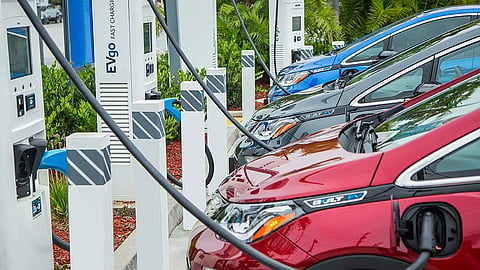New BIS EV performance standards to regulate Lithium-ion battery manufacturing
Amid the rising EV fire episodes in the country Bureau of Indian Standards issued new performance standards for lithium-ion batteries to safeguard the consumers. BIS, which comes under Union Consumer Affairs Ministry, with this new standard will regulate the manufacturing of electronic batteries. The new BIS standard called "IS 17855: 2022" has been designed for lithium-ion traction battery packs and systems of electrically-propelled road vehicles.
Regulation based on real life scenarios
The requirement of battery systems for use as a power source for propulsion of vehicles are significantly different from the battery used for consumer electronics or stationary use, which makes it even more important for the authorities to regulate it's manufacture.
The new BIS EV performance standards are formulated considering the real life scenarios for an electric vehicle such as charging vehicles for an extended period of time, storage of battery system, operating battery at low and high temperature and more. Additionally, these standards for EV batteries will look into size, connectors, specification and minimum quality of cells as per the battery's capacity.
Why is BIS regulations needed?
The BIS had ordered a probe into Tata Motors' Nexon EV fire incident in Mumbai on June 22nd. The Defence Research and Development Organisation (DRDO), which was earlier tasked with investigating electric two-wheeler fire incidents by the Union Road Transport and Highways Ministry, lead the probe into Nexon EV fire.
The DRDO probe found serious defects in the electric two-wheeler batteries. These defects occurred because the electric two-wheeler manufacturers like Okinawa Autotech, Pure EV, Jitendra Electric Vehicles, Ola Electric, and Boom Motors may have used lower-grade materials to cut costs. Earlier, NITI Aayog has also stressed upon the need for BIS standards as the first step towards the national battery swapping policy.
-With inputs from IANS
To get all the latest content, download our mobile application. Available for both iOS & Android devices.

